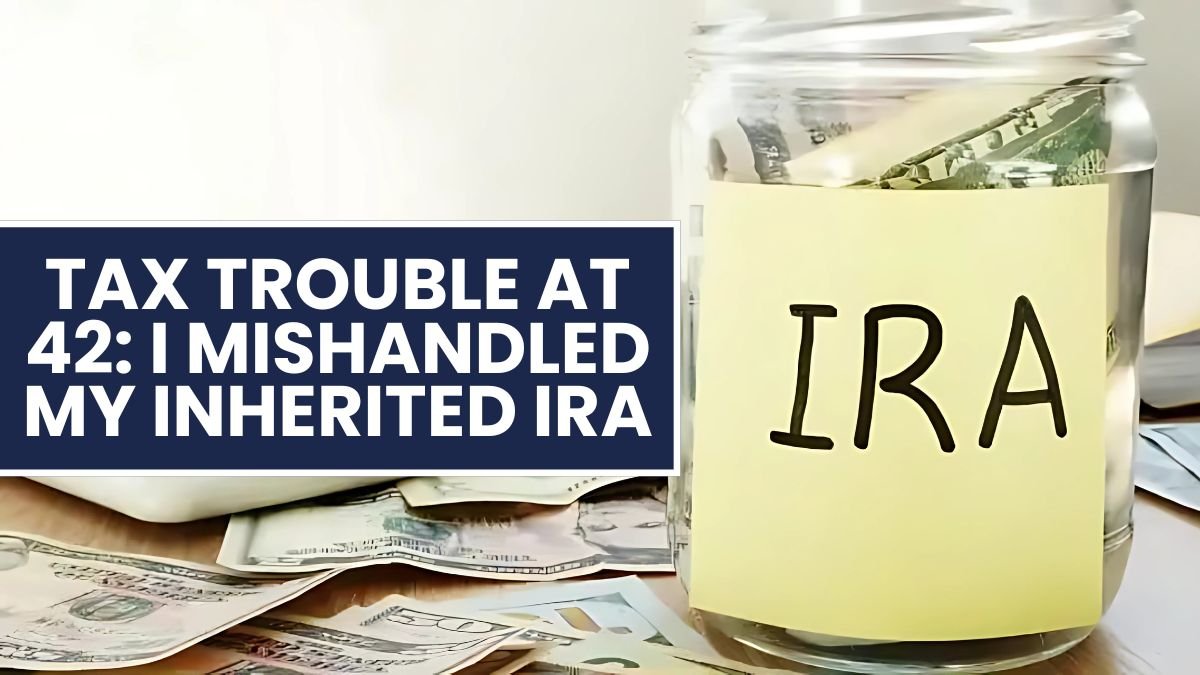Tax Trouble at 42: A man’s father, who was 60 years old at the time, died in 2009. His Traditional IRA was inherited by the son. Initially he took Required Minimum Distributions (RMDs) from that account on time, as required by IRS rules. The account was with a large investment company and everything was going well.
Confusion after switching investment firms
In 2017, frustrated with the high fees charged on investments, he transferred the account to another firm. RMDs were taken on time there too. But in 2018, he decided he wanted to manage the account himself, so he transferred the account again and started operating it himself. This is where the mistake started.
Stopped taking RMDs and made a serious mistake in account type
When he took control of the account, he accidentally set it up as a Rollover IRA, when it should have been an Inherited IRA (or IRA BDA – Beneficiary Distribution Account). Since he opened the account himself and didn’t find an obvious “Inherited IRA” selection in the online options, he couldn’t figure out what was going wrong. He thought dividends were being reinvested in the account, when in fact RMDs were not being taken.
Non-cooperation from the current financial company
When he realized the mistake, he contacted the current financial company. He was told that to set up the account correctly as an Inherited IRA again, the money would have to be moved back to the old account and then the transfer could be done correctly from there. But the old company refused, saying that the account had been closed and they could not reopen it.
What do experts say?
According to financial expert Jim Hemphill, this case is a completely wrong example of DIY management. He told that a Beneficiary IRA can never be transferred to a Rollover IRA. The effect of this mistake will be that the IRS will see it as if the entire account has been cashed out that year. This means that full tax will have to be paid on that amount.
Cristina Guglielmetti, another financial planner, said that surprisingly this transfer even happened. Normally, such a process has many safeguards to prevent an inherited IRA from being transferred to the wrong account. It is possible that there was a mistake in the documents or the system that made this mistake possible.
Seven-year delay and increasing complications
The mistake occurred in 2018 and now it is 2025. The account balance may have grown over the years. This long gap has made the solution more complicated. Now neither can the account take RMDs correctly, nor can it be converted back to the correct form according to IRS rules.
Tax risks and penalties
According to the IRS, not taking an RMD can result in a penalty of up to 50% of the withdrawal amount. And if a person withdraws money from their personal rollover IRA before age 59½, there is an additional penalty of 10%. In this case, because the account was transferred to the wrong type, the risk of both penalties remains. However, according to Jim Hemphill, since the transfer itself was illegal, the IRS may consider it a complete withdrawal and then only income tax will be levied on it, not both penalties.
Towards solution
The first step is to seek the help of an experienced CPA (Certified Public Accountant) or tax advisor. They will have to get the tax return of 2018 amended, in which the entire amount of the account is shown as taxable income. Along with this, tax will have to be paid along with interest and late fees.
The second step can be to ask the financial institution to issue amended 1099 forms for 2018 and subsequent years. If the institution does not do so, then the situation will have to be clarified to the IRS with the help of a tax advisor.
If the matter is more complicated, the services of a tax attorney specializing in retirement plan law can be taken, who can appeal to the IRS for a waiver. This process can be expensive and there is no guarantee of its success.
What to be careful about in the future?
An important lesson from this case is that it is important to be fully aware of the tax rules of inherited retirement accounts before ever managing them on your own. RMDs are mandatory every year, and the account must be transferred or opened according to the type of account.
Also, when a person dies, it is important to file their financial documentation properly. Many times people do not fill Form 706 because their estate is below the tax limit, but this form helps in documenting the account type and inheritance.
Conclusion
Ignoring the rules of the inherited IRA account has put this person in a big tax crisis today. His mistake was not that he misused the money, but that he started managing a complex account on his own without understanding the depth of the rules. Now the only way out is to take help from experts, correct his tax returns and avoid these mistakes in the future.
Even a small mistake regarding IRS tax rules can cause a serious blow to your financial stability — so make every decision carefully and with advice.
FAQs On Tax Trouble at 42
Q. Can an Inherited IRA be rolled into a personal Rollover IRA?
A. No, IRS rules prohibit rolling an Inherited IRA into a personal or Rollover IRA.
Q. What happens if I miss RMDs from an Inherited IRA?
A. You may face a 50% penalty on the amount that should have been withdrawn.
Q. Will I be charged a 10% penalty for withdrawing funds at age 42?
A. Yes, if it’s from a Rollover IRA not meant for inherited funds.



